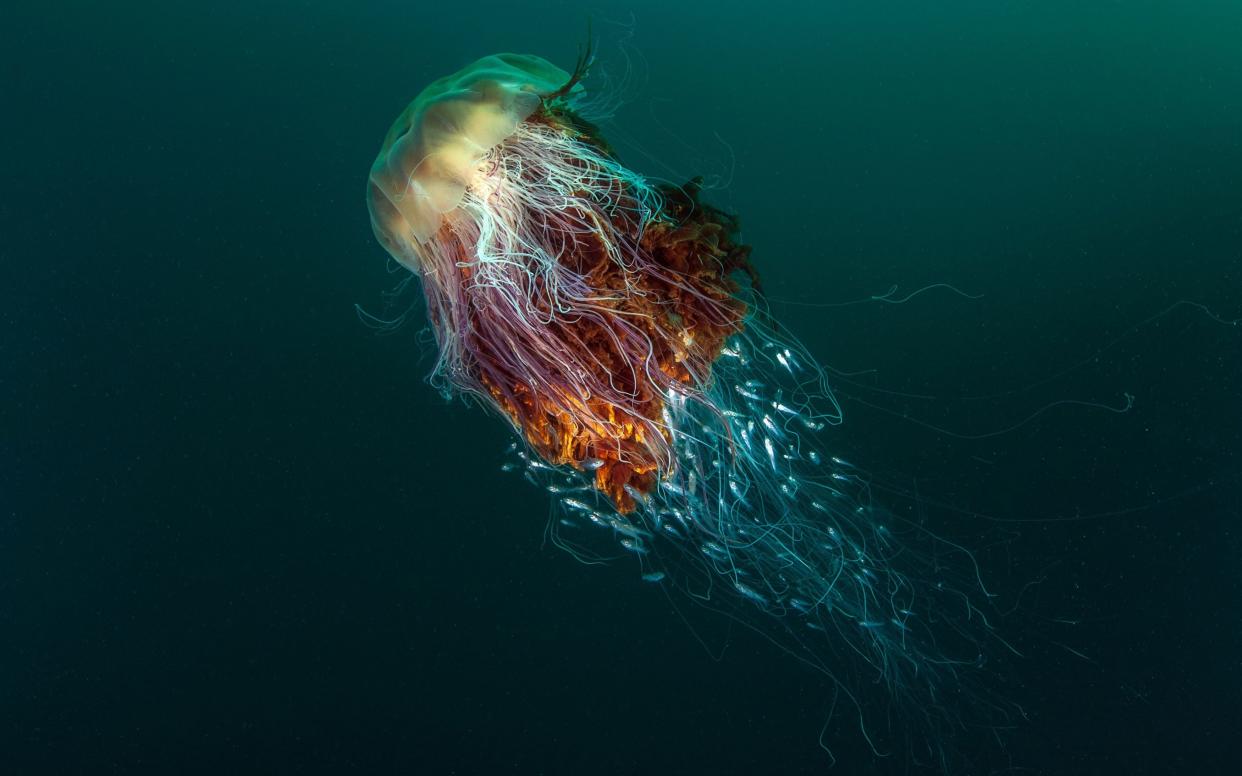Brits should eat jellyfish to save other fish species, Marine Conservation Society says

Brits should start eating jellyfish to save the nation's fish stocks, the Marine Conservation Society has said.
It comes as the UK has experienced an influx of thousands of jellyfish washing up on its shores in recent years.
But instead of fearing their stings, we should look on them as a bonanza crop to be harvested as food, according to experts.
In Asian countries jellyfish is a commonly eaten dish which is low in calories and high in protein.
Dr Peter Richardson, head of ocean recovery at the Marine Conservation Society, said a move towards Brits eating jellyfish could help save dwindling numbers of traditionally eaten fish.
He said: "Jellyfish are a good potential source of sustainable fish and if Brits started eating them instead of heavily farmed varieties it could be a very good thing. However Brits are very conservative in their palates so they would take some convincing!

"In other counties people are more adventurous and happily eat jellyfish. Jellyfish populations are very boom and bust so no-one in the UK has worked out how to harvest them for food yet, but it could be done. There are already two companies in South Wales who are harvesting barrel jellyfish to extract collagen from them."
Jellyfish are known to increase in number in areas of the ocean in which other species are dwindling, and are one of the few marine species to be increasing in number. Not all of them are edible.
Last month researchers from the University of Southern Denmark said they had developed a way to create jellyfish chips with a crispy texture. While jellyfish have been a staple in Asian cuisine for centuries, they remain an oddity to the western palate.

To prepare jellyfish, traditionally the bell or body of the creature is marinated in salt and potassium alum for several weeks to produce a crunchy texture. But the Danish researchers' technique produces the same results in just a few days.
Dr Mathias P. Clausen, who led the study, said "Using ethanol, we have created jellyfish chips that have a crispy texture and could be of potential gastronomic interest."
The researchers also looked at how the long fibrous filaments in the gelatinous jellyfish bell are transformed during the curing process to produce the crunchy texture.

 Yahoo News
Yahoo News 
